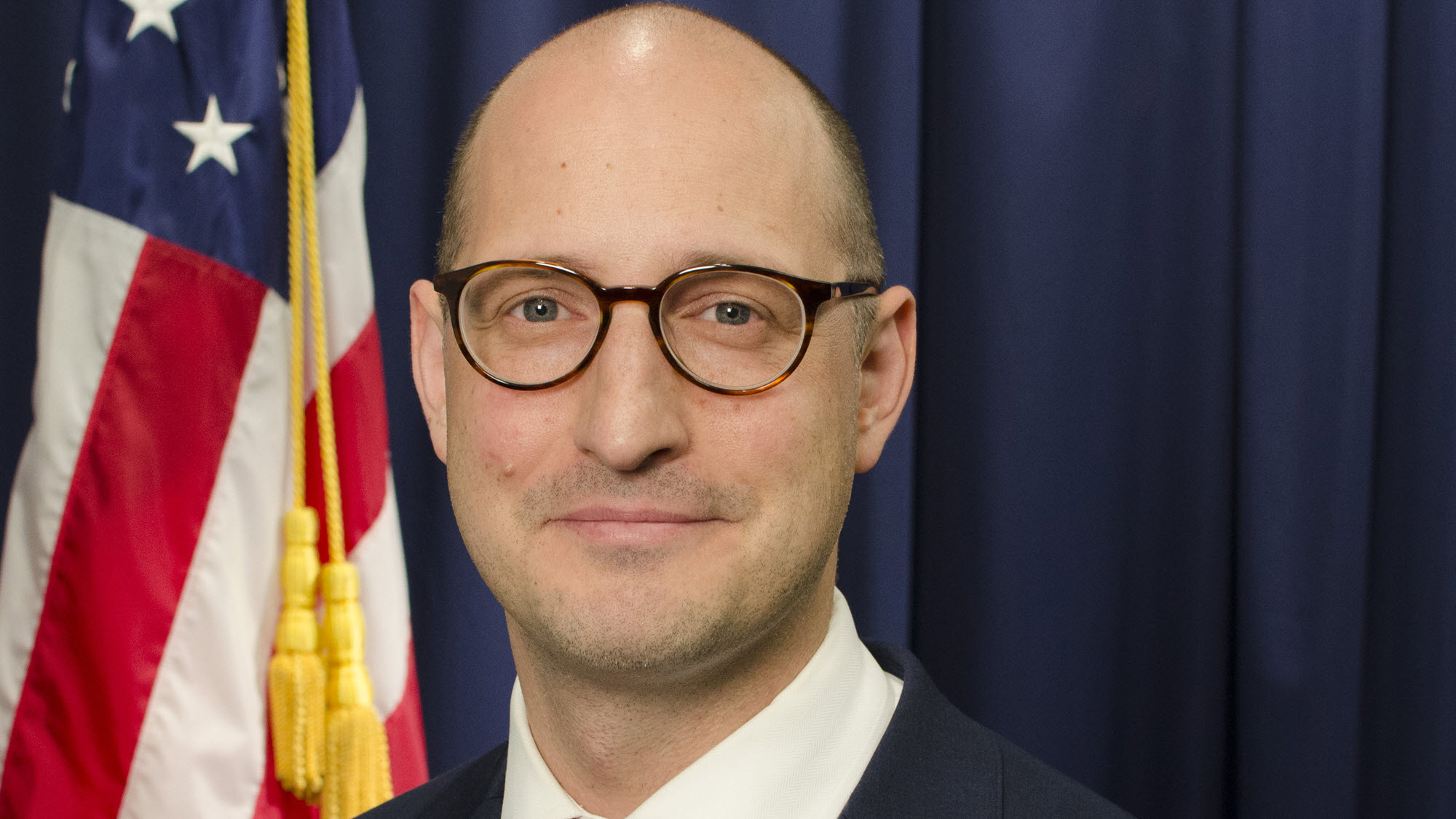Privacy Policy Could Impede Competition, Innovation, New FTC Commissioner Warns
The smarter way to stay on top of the multichannel video marketplace. Sign up below.
You are now subscribed
Your newsletter sign-up was successful
"Laws and regulations intended to promote privacy may build protective moats around large companies ... making it more difficult for smaller companies to grow, for new companies to enter the market, and for innovation to occur," Federal Trade Commissioner Noah Phillips told the Internet Governance Forum USA conference in Washington on July 27.

Phillips indicated that communications and technology companies, "some of which already possess significant amounts of data about people," will be of special interest when the FTC begins its extensive probe into privacy and other digital business practices starting in September.
"Competition must be part of ... our conversation about privacy," said the new commissioner in one of his first the public presentations since taking a Republican seat at the FTC in May. Echoing the words of FTC chair Joseph Simons, who also was sworn in two months ago, Phillips warned that, “If you do privacy in the wrong way ... you might end up reducing competition. You might create a situation in which you entrench the large tech platforms [and] make it very difficult for ... new entrants and smaller firms to get the attention of the consumers that they’re trying to reach.”
Related: Trump Taps Simons for FTC Chair
Phillips's prepared remarks were laden with objectives from both sides of the regulatory spectrum, ranging from pro-business protections to concerns that lobbying by incumbent technology providers could shut out innovative upstarts. Citing arguments about the risks inherent in “leveling the playing field” among firms doing different things with different kinds of data makes sense, Phillips insisted.
"We do not want the regulatory burden to be so onerous that it excludes potential market entrants or inhibits innovation," he said.
But Phillips also emphasized the "brand effect" advantage that big companies have in the marketplace, because consumers "are likely to trust the companies they know." That leads to "another, more insidious, effect that any regulatory regime can have: Large companies can manipulate legal requirements to their own benefit more easily than smaller competitors or new entrants."
The smarter way to stay on top of the multichannel video marketplace. Sign up below.
"The benefit to incumbents is not just lobbying for laws that favor them; it is also implementing seemingly neutral laws or regulations in ways that benefit them at the expense of their would-be competitors," Phillips added.
Phillips' focus on privacy reinforced the opening keynote that morning by David Redl, assistant Secretary of Commerce for Communications and Information, and head of the National Telecommunications and Information Administration.
"We will be looking to strike a balance between prosperity and privacy that is in line with American values – and we’re listening to a broad cross-section of stakeholders to find that balance," Redl said.
Redl cited NTIA's plan to publish the high-level principles along with a Request for Comment in order to "begin engagement on how to move forward to reach the goals set out in the document." He did not specify a timetable for this process.
Redl also summarized NTIA's cybersecurity and ongoing Intellectual Property projects, including its triennial review process under the Digital Millennium Copyright Act.
Learning from Europe's GDPR
Acknowledging the kerfuffle about Europe's recently imposed General Data Protection Regulation (GDPR), Phillips contended that for Europeans, it represents an expression in law of their view that the protection of personal data is a fundamental right.

"For the U.S., it may provide a test case for how a different privacy regime than our own might work," the FTC commissioner continued. "My concern is that early signs point to precisely the effects on competition that I fear."
Phillips said that as U.S. regulators consider the potential benefits of new privacy protection, "We must consider the costs, too, on competition and innovation."
"GDPR provides us with a great opportunity to see how a large-scale privacy regime works in practice, and for us in the United States to learn from Europe’s experience."
Related: Sen. Blumenthal Preps U.S. Version of EU Privacy Framework
Phillips also used the IGF-USA platform to plug the FTC's multi-day, multi-part hearings that will explore privacy and other "broad-based changes" in the economy. The FTC expects its hearings, announced last month, to consist of up to 20 sessions from September through January 2019. Topics will include evolving business practices, new technologies and international developments that "might require adjustments to competition and consumer protection enforcement law, enforcement priorities, and policy."
In announcing the comprehensive investigation, the FTC said it seeks initial input by Aug. 20 on factors such as the competitive effects of corporate acquisitions and mergers and analyses of monopsony power. It also invited comments about the role of intellectual property and competition policy in promoting innovation and implications about the use of big data, artificial intelligence and predictive analytics.
Contributor Gary Arlen is known for his insights into the convergence of media, telecom, content and technology. Gary was founder/editor/publisher of Interactivity Report, TeleServices Report and other influential newsletters; he was the longtime “curmudgeon” columnist for Multichannel News as well as a regular contributor to AdMap, Washington Technology and Telecommunications Reports. He writes regularly about trends and media/marketing for the Consumer Technology Association's i3 magazine plus several blogs. Gary has taught media-focused courses on the adjunct faculties at George Mason University and American University and has guest-lectured at MIT, Harvard, UCLA, University of Southern California and Northwestern University and at countless media, marketing and technology industry events. As President of Arlen Communications LLC, he has provided analyses about the development of applications and services for entertainment, marketing and e-commerce.

